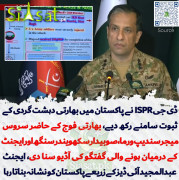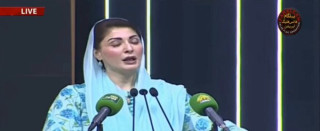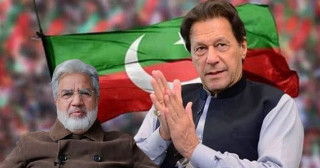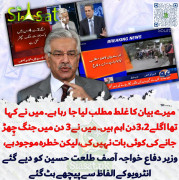QaiserMirza
Chief Minister (5k+ posts)

Fear Hellfire and do not let your garment hanging down below the Ankle.
Prophet (peace and blessings of Allaah be upon him) said: "Whatever of the izaar (lower garment) is below the ankles is in the Fire." (al-Bukhaari, no. 5787)
The Prophet (peace and blessings of Allaah be upon him) said: "There are three whom Allaah will not look at or praise on the Day of Judgement and theirs will be a painful punishment: the one who wears his garment below his ankles, the one who reminds others of his favours, and the one who sells his product by means of making false oaths" (reported by Muslim, no. 106)
The Prophet (peace and blessings of Allaah be upon him) said: "Isbaal (wearing ones garment below the ankles) may apply to the izaar (lower garment), the shirt or the turban. Whoever allows any part of these to trail on the ground out of arrogance, Allaah will not look at him on the Day of Judgement." (reported by Abu Dawud, no. 4085, and al-Nisaai, no. 5334, with a saheeh isnaad).
Ibn Abbaas reported that the Prophet (peace and blessings of Allaah be upon him) said: "Allaah will not look at the one who wears his lower garment below his ankles." (Reported by al-Nisaai in al-Mujtabaa, Kitaab al-Zeenah, Baab Isbaal al-Izaar).
Hudhayfah said: "The Messenger of Allaah (peace and blessings of Allaah be upon him) took hold of the muscle of my calf (or his calf) and said, This is where the izaar should stop; if you insist, it may be lower, but it should not reach the ankles." (Reported by al-Tirmidhi, who said this is a saheeh hasan hadeeth; see Sunan al-Tirmidhi, no. 1783)
Hudhayfah said: "The Messenger of Allaah (peace and blessings of Allaah be upon him) took hold of the muscle of my calf (or his calf) and said, This is where the izaar should stop; if you insist, it may be lower, but it should not reach the ankles." (Reported by al-Tirmidhi, who said this is a saheeh hasan hadeeth; see Sunan al-Tirmidhi, no. 1783)
All of the ahaadeeth quoted above speak against isbaal, whether or not the intention is to show off; but if a person does this deliberately out of arrogance, there is no doubt that his sin is greater. The Prophet (peace and blessings of Allaah be upon him) said: "Allaah will not look at the one who trails his izaar on the ground out of pride." (al-Bukhaari, no. 5788)
Jaabir ibn Sulaym said: "The Messenger of Allaah (peace and blessings of Allaah be upon him) said to me: Beware of wearing ones lower garment below the ankles, because this is a kind of showing-off, and Allaah does not love showing-off." (Regarded as saheeh by al-Tirmidhi, no. 2722).
No one is able to be completely free of pride and arrogance, even if he claims that this is so. Such a claim is unacceptable, because by saying it, he is praising himself. Only in the case of those whom the wahy (revelation) testified that they were free of pride do we believe that this is the case. For example, there is a hadeeth which states that the Prophet (peace and blessings of Allaah be upon him) said: "Whoever trails his garment on the ground out of pride, Allaah will not look at him on the Day of Resurrection." Abu Bakr said to him, "O Messenger of Allaah, my izaar slips down if I do not pay attention to it." He said: "You are not one of those who do it out of pride." (Reported by al-Bukhaari, no. 5784)





























